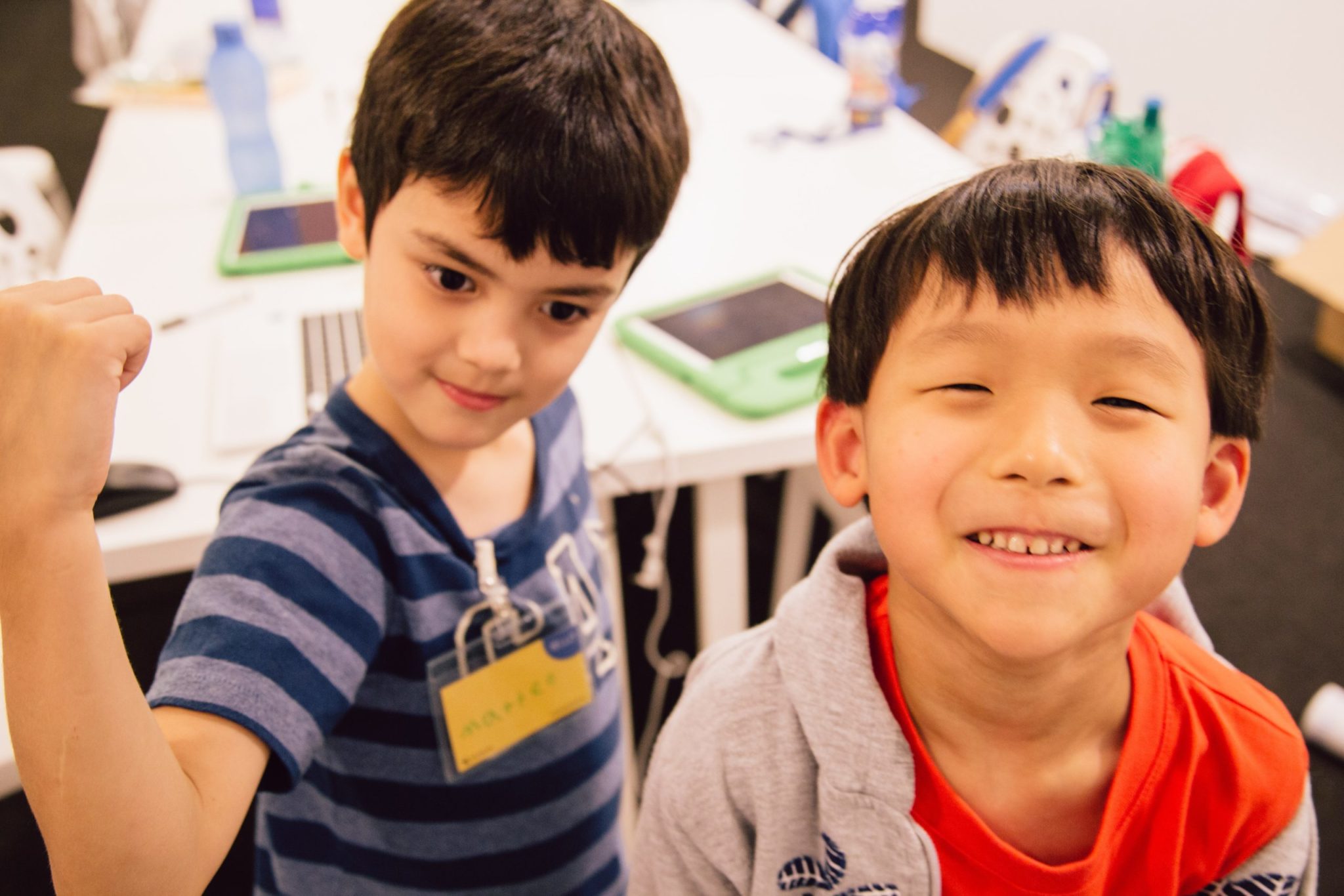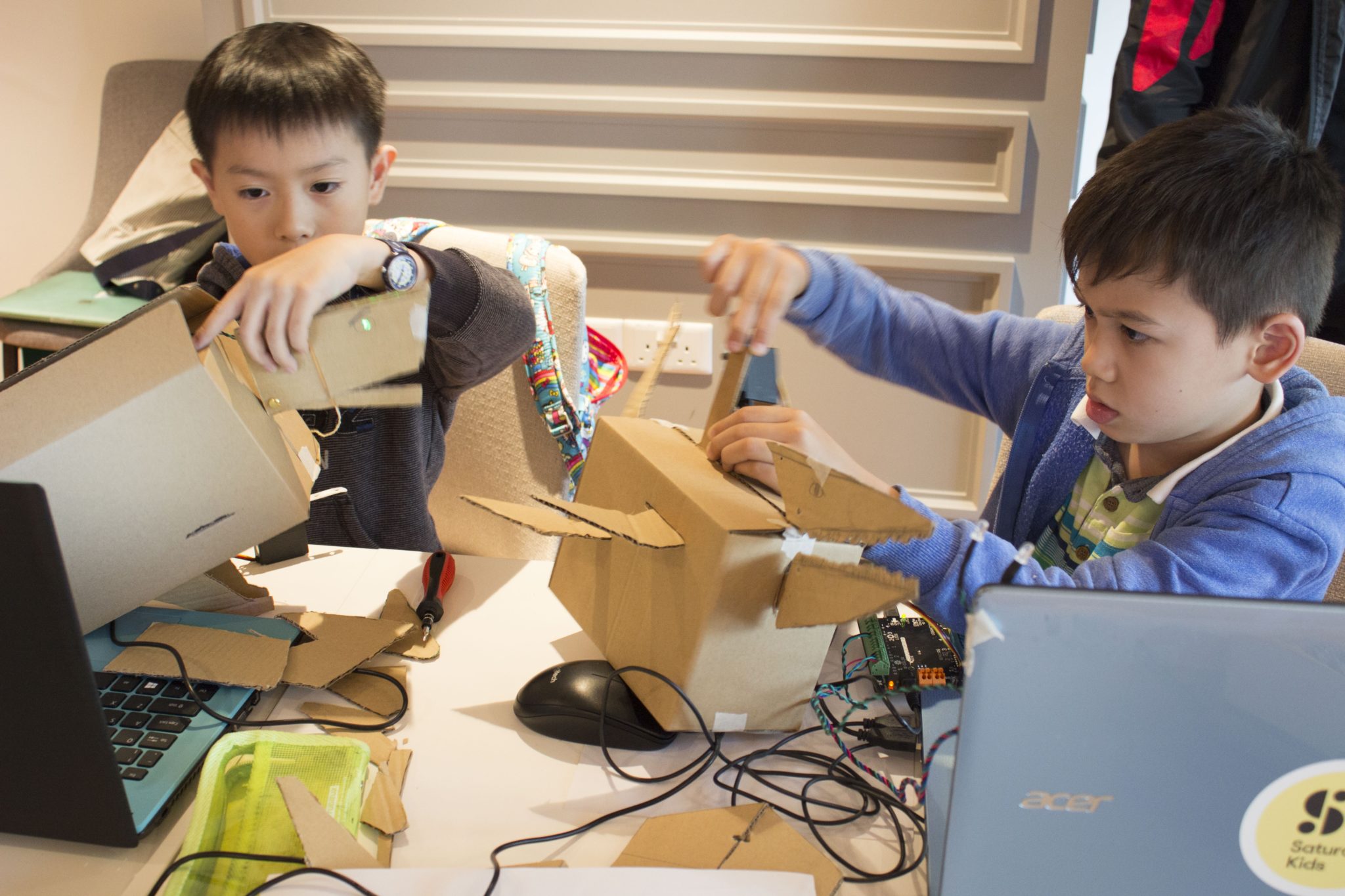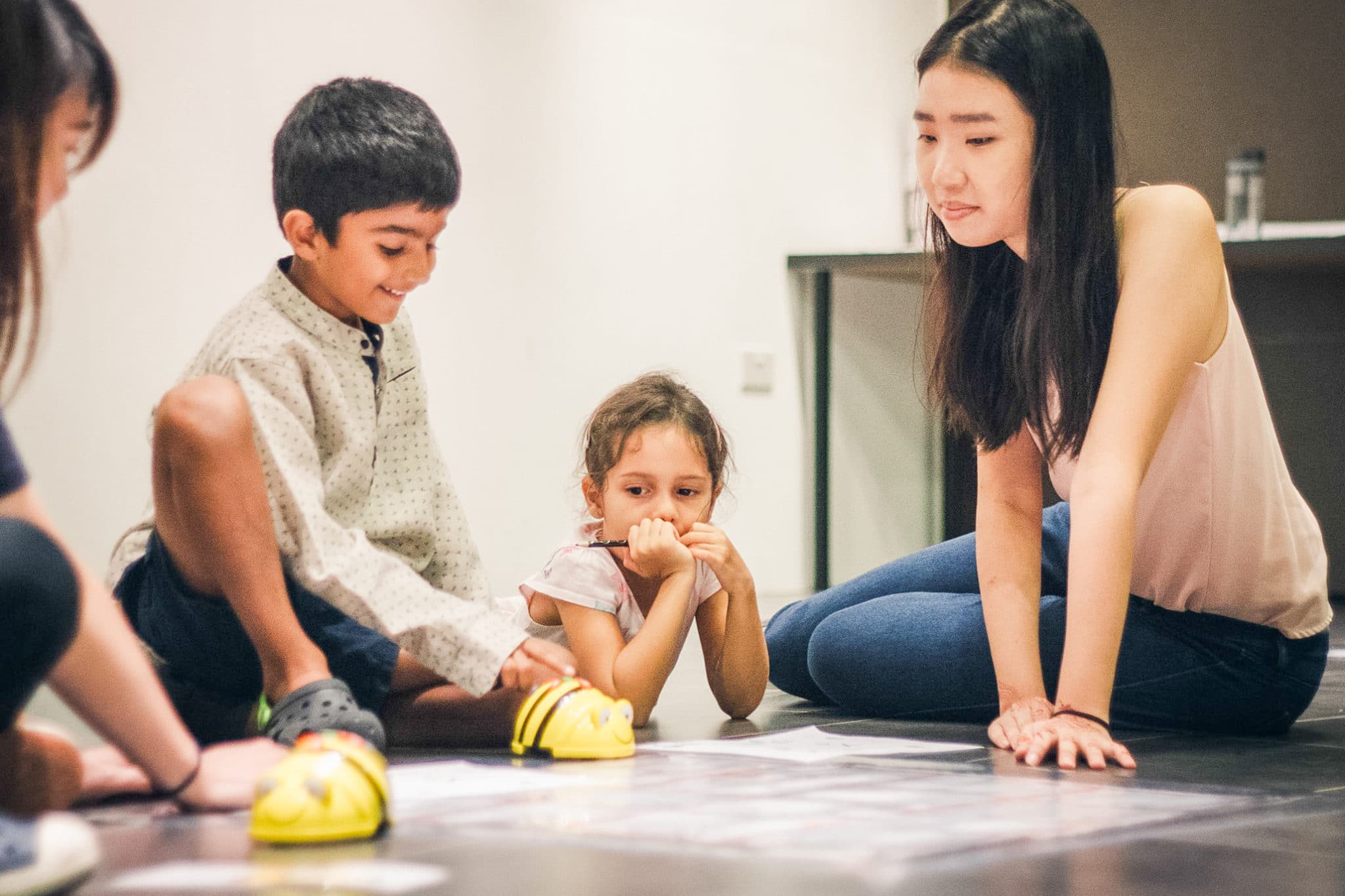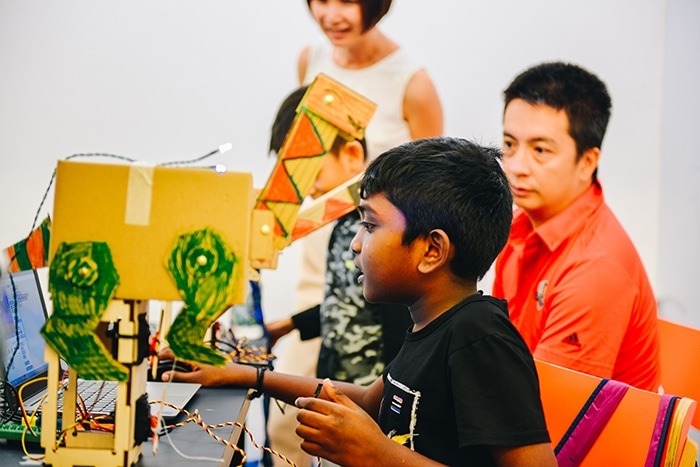How to Raise Independent Kids: Learn from the Montessori Approach
May 31, 2019

At Saturday Kids, we believe equipping kids with the ability to steer their own paths, regardless of whatever life throws at them, is one of the most precious tools we can give them. This guest post is by Victoria who leads our social impact programme Code in the Community and who’s also a Montessori educator over at The Bright Life. Check out her previous pieces on why failure isn’t necessarily a bad thing and raising self-directed learners.
In this third piece, Victoria explores what parents can do to nurture kids’ independence, without compromising their own values and responsibilities. Here are 4 suggestions on what parents can do to raise independent kids, with takeaways from the Montessori approach.
1. Manage your expectations and take baby steps
As parents, our expectations are often skewed towards what we expect adults to do, and not these young, curious, still-developing minds.
Expect children to sit quietly during a meal and focus on eating? No. Expect them to automatically want to clean up their toys after playing? No. Expect that they not scream and cry when they are upset? No.
Children aren’t terrible creatures who can’t listen. Instead, they’re just not wired to be suppressed by these obligations and norms we, adults, abide by.
The part of our brain that controls self-restraint only develops around our 7th birthday. Even then, you can still expect to repeat yourself countless times, or to remind your child about certain tasks endlessly. Before we shrug off all unruly and undesirable behaviour with “they’re just being kids”, it’s good to reflect on what boundaries should be in place. These boundaries should be consistently reinforced, with consequences enforced, should the boundaries be broken.

So, what’s reasonable to expect of a child? Most kids under 5 have high tendencies for meltdowns because they’re still figuring out how to articulate their feelings. That’s not to say that older children (even adults!) don’t go through a tough time sorting out their feelings. A reasonable expectation across all ages is that hurting others is not allowed, and if they must get it out of their system, they can hit a pillow instead.
Educating children on methods to cope with their feelings enables them to manage situations better, with increasing independence.
This helps especially when a parent isn’t present, like at school.
It’s also good to have an idea of some activities your child can begin to do independently. The fastest way to identify these activities is to observe what your child has an interest in doing. For example, a toddler who wants to start feeding themselves will usually grab at utensils or food and begin directing it into their mouth. At this stage, you can try introducing foods that are easy to eat, such as pieces of cut apple, or utensils which are suitable for them. Older children may start showing an interest in washing the car or cooking dinner, so it’s a good time to get them involved then.
When it comes to what is reasonable, try not to make comparisons as each child’s development and motivations will differ, as will parents’ boundaries and enforcement techniques. What’s more important is to focus on establishing reasonable boundaries which you and your child can accept and work towards together.
2. Offer opportunities to practice independence

Why is “turning 18” seen as the magical age when children suddenly become adults expected to be able to do everything themselves, and how might we prepare our children for this?
Childhood education is a foundation which we need to build rock solid to stand a chance against all the challenges raising a teenager brings.
When it comes to independence for a young child, it’s ideal to start with helping children help themselves.
This means setting them up for success in performing simple, yet necessary, tasks. Things such as cleaning up after themselves if they’ve made a spill, learning how to change their own clothes, or even helping to load laundry into the washing machine – these set the stage for greater independence in future.
To start introducing activities to your child, always demonstrate rather than instruct. I’ve noticed this also works with older children – demonstration leads to better understanding of the task, and therefore efforts usually pay off.
Independence relates to being able to think independently. Open-ended questions are great for that, such as, “where do you think the bus is going?”, “how should we move this from here to there?”, and “why do you think birds sing?” These questions are also good starting points to delve deeper into exploring a topic and also show children how to find the answers to questions they have, such as by reading up in books or using search engines for help.
3. Resist the urge to help your child – until they ask
Maria Montessori said, “never help a child with a task at which he feels he can succeed.”
When we do, we rob our children of that amazing feeling of satisfaction they would have gotten when they succeed on their own. It also tends to deter children from trying because they focus on the end result as opposed to the process of learning and trying to succeed.

There have been occasions when my son tells me to help him build a tunnel using his blocks because he thinks I do a better job. In such instances, I either encourage him to join me by asking him, “hmm, I am stuck. Where do you think I should put this block?” or by reminding him that he’s good at building and to use a concrete example of something awesome he’s done to boost his confidence.
Resisting the urge to help our children is very, very difficult especially when we can see why they’re having a hard time, and all we want to do is just give them that little bit of assistance to help them succeed.
Until they ask, gesture or indicate they need help, resist the urge to step in and make those adjustments.
It breaks their concentration and determination. Instead, if you see them getting frustrated, then say, “I will be here if you need some help”, and wait for their response. It shows respect towards their efforts, and allows them to consider if they want the help.
4. Offer encouragement, not praise

Many parents I’ve met are their child’s biggest cheerleaders, and it’s really a great way to foster the spirit of trying. When we dish out words of encouragement, I like to focus on telling my son that I am proud of him for not giving up, for sticking through something he doesn’t enjoy (like putting his head underwater during swimming lessons) or for just trying to look at something from a different perspective. I’ve spoken about intrinsic motivation in our previous piece and I would like to build on the concept of shame.
According to psychologist Eric Erickson, an important part of the toddler years as the need to establish autonomy vs shame. Their impulse is to do everything on their own and build greater control over their bodies. Children who are well supported during this phase grow up with confidence and a great sense of security.
One key component of support is to offer plenty of encouragement – not praise – as a child strives to succeed at a task. On the flip side, those who have experienced constant shaming likely grow up feeling insecure and doubtful of their abilities.
This is a reminder that not all of our natural reactions are the best way of dealing with our children. For example, my son often insists on drinking from a cup which tends to end up in a massive water play session. On days when we are short on time and I’m left with a toddler sitting in a puddle of water in the middle of the kitchen, it’s very tempting to think, “What in the world are you doing?” which implies that his actions were not very intelligent. Instead, responding with “I see there’s water everywhere. How did this happen?” could be a better start to have a conversation about discipline.
. . .
It’s not always straightforward to navigate how we can better work with and support our children. There are days where even the best intentions turn out less than stellar. On days like those, remember that being able to say sorry or make amends is also an important lesson for our children to learn, and shows great humility to work with our children in a collaborative way.
…
At Saturday Kids, we’re on a mission to inspire kids to be curious and self-motivated learners.
Find out what we’ve got planned for kids this school holiday right here!
Through this series of articles, we hope to create conversations around what real learning means.
If you have any comments or feedback or just want to chat over a coffee, drop us an email at [email protected]!
Read more from this series:
Why Failure is Not Always a Bad Thing
Raising Self-Directed Learners: What is Intrinsic Motivation and Why Does It Matter?
About Victoria Yim
Victoria manages Code in the Community – providing free coding classes for kids from lower-income families – and is also the founder of The Bright Life, where she runs parenting workshops and mindfulness programmes for children, working closely with parents to build on techniques to bring calm into the home.